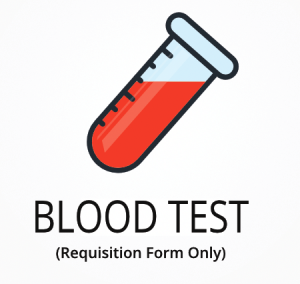Ordering the Liver Function Test
The Liver Function Test helps check how well your liver is working by measuring specific proteins, enzymes, and waste products in your blood. This test can show early signs of liver stress or damage, even before symptoms appear. Interestingly, some people with mild liver changes may not feel any different, but the test can still pick up these changes.
Ordering the Liver Function Test can help you:
- Track how your liver responds to certain medications, like Accutane, that may affect liver cells.
- Monitor liver enzyme levels if you have a history of hepatitis or cirrhosis.
- Check for changes in liver function if you drink alcohol regularly.
- Detect protein and bilirubin changes that may signal early liver issues.
- Follow up on abnormal results from other blood tests to get a clearer picture of your liver’s condition.
Who Should Consider Liver Panel Screening
People who want to keep an eye on their liver health, especially if they have risk factors, may benefit from this test. For example, someone who recently started a new medication and wants to make sure it isn’t affecting their liver could use this test for peace of mind.
Ordering this test may also be helpful in these situations:
- After a recent change in diet or supplement routine that could impact liver function
- When monitoring a long-term condition like diabetes, which can sometimes affect the liver
- If you have a family history of liver disease and want to check your own levels
- For those who have unexplained fatigue or mild digestive changes that could be linked to liver function
- People who have recently traveled to areas where hepatitis is more common, even if they feel fine
This test gives you clear numbers on how your liver is working, helping you and your doctor decide if any changes are needed. Delaying this test could mean missing early signs of liver changes, which are often easier to manage when found sooner.
Preparing for Your Liver Enzyme and Protein Panel
Fasting is not required before this test, so you can eat and drink as usual unless your doctor gives you different instructions. Always follow any directions your healthcare provider gives you to make sure your results are as helpful as possible.
Labs Included When Ordering Your Liver Function Test
| Test Name | Reference Range | What This Test Measures | Low and High Levels of Liver Function Test |
|---|---|---|---|
| Alanine Aminotransferase (ALT/SGPT) | 7-52 | ALT is an enzyme found mostly in the liver. It helps break down proteins and is released into the blood when liver cells are damaged. |
High levels mean your liver cells may be injured or inflamed.
Low levels mean your liver is likely working normally or there may be a lack of enzyme production. |
| Albumin | 3.5-5.7 | Albumin is a protein made by the liver. It helps keep fluid in your blood vessels and carries hormones, vitamins, and medicines through your body. |
High levels mean you may be dehydrated or losing fluid.
Low levels mean your liver may not be making enough protein or you may have kidney issues. |
| Albumin/Globulin Ratio | 1.0-2.1 | This ratio compares the amount of albumin to globulin in your blood. It helps show if your liver is making proteins in the right balance. |
High levels mean you may have low globulin or high albumin, sometimes linked to certain genetic conditions.
Low levels mean your liver may not be making enough albumin or you may have high globulin from inflammation. |
| Alkaline Phosphatase | 40-129 | Alkaline phosphatase is an enzyme found in the liver, bones, and other tissues. It helps break down proteins and is released when there is a blockage or bone growth. |
High levels mean there may be a blockage in your liver or bile ducts, or increased bone activity.
Low levels mean you may have a protein or mineral deficiency, or certain genetic conditions. |
| Aspartate Aminotransferase (AST/SGOT) | 13-39 | AST is an enzyme found in the liver, heart, and muscles. It is released into the blood when these tissues are damaged, especially the liver. |
High levels mean your liver or muscles may be injured.
Low levels mean your liver and muscles are likely not damaged. |
| Gamma-glutamyl transpeptidase (GGT) | 9-48 | GGT is an enzyme that helps move amino acids across cell membranes. It is often checked to see if there is a problem with the bile ducts or alcohol use. |
High levels mean there may be bile duct problems or heavy alcohol use.
Low levels mean your bile ducts are likely working normally. |
| Globulin (calculated) | 2.0-3.5 | Globulin is a group of proteins in your blood, including antibodies. It helps fight infection and carry nutrients. |
High levels mean your body may be fighting an infection or inflammation.
Low levels mean you may have trouble making antibodies or protein loss. |
| Bilirubin, direct | 0.0-0.3 | Direct bilirubin is a waste product made when the liver breaks down old red blood cells. It shows how well your liver is clearing waste. |
High levels mean your liver may not be clearing waste properly or there may be a blockage.
Low levels mean your liver is clearing waste as expected. |
| Bilirubin, total | 0.1-1.2 | Total bilirubin measures both direct and indirect bilirubin. It helps show if your liver is working well and if red blood cells are breaking down too fast. |
High levels mean your liver may not be processing waste or there may be rapid red blood cell breakdown.
Low levels mean your liver is likely processing waste normally. |
| Protein, total | 6.0-8.5 | Total protein measures the amount of albumin and globulin in your blood. It shows if your liver is making enough proteins for your body’s needs. |
High levels mean you may have inflammation or infection.
Low levels mean your liver may not be making enough protein or you may have kidney issues. |
Reference ranges can change over time. For the most current values, visit the Quest Diagnostics lab test directory.
Liver Function Test FAQ
Is there Liver Function testing near me?
You can find nearby locations for Liver Function testing using the patient service center locator, which also lists mobile phlebotomy options. This is especially helpful if you need regular monitoring for medication side effects or want a convenient place for quick blood draws.
What is the cost of the test?
The price you see for the Liver Function Test includes all fees, including sample collection at patient service center locations. Ordering this test is worth it if you want to track changes in your liver related to medication, alcohol use, or chronic conditions.
How often should I retest?
Most people retest every 6 to 12 months, or as recommended by their doctor, especially if they are taking medications or have ongoing liver concerns. Regular retesting helps catch changes early, so you and your doctor can make timely decisions about your care.
How accurate is the test?
The Liver Function Test uses automated chemistry analyzers with spectrophotometric methods, providing a specificity of 98% and a sensitivity of 97%. All tests at TrueHealthLabs.com are performed by CLIA-certified labs, meeting strict quality and precision standards.
Important Notes
None.
Medical Review Board
Reviewed by Jeff Donohue M.D. from Body Logic and Brady Hurst DC, CCCN. Written by True Health Lab’s team of editorial health contributors.
Disclaimer: This information is for educational purposes only and not intended as medical advice. Consult your healthcare provider for personalized guidance.
Why Customers Trust True Health Labs - What People are saying
Also rated 4.6 out of 5 based on 3452 ShopperApproved reviews- See all TrueHealthLabs.com reviews.







